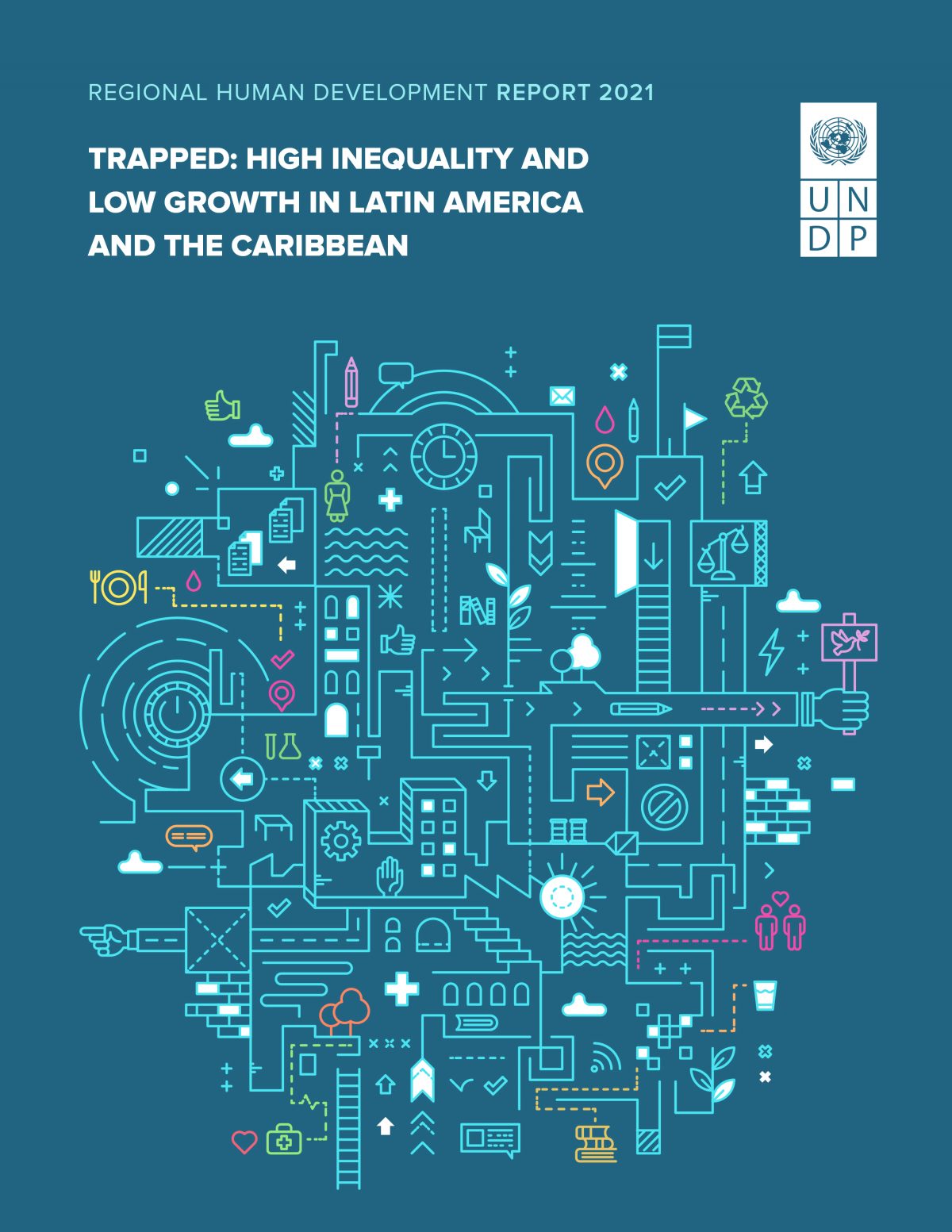The United Nations Development Project (UNDP) has found that inequality remains persistently high in Latin America and the Caribbean (LAC) region while productivity growth is low.
“Despite decades of progress, some of which could be wiped out by the COVID-19 pandemic, two characteristics of the region have remained largely undisturbed: high inequality and low growth. These two factors are closely related and interact with one another to create a trap from which the region has been unable to escape. This is not a new finding. This phenomenon is well documented in the region,” the UNDP’s 2021 Regional Human Development Report, which was launched virtually on Monday, says.
The report, titled “Trapped: High Inequality and Low Growth in Latin America and the Caribbean,” states that while there was widespread reduction of income inequality in the early 2000s, this became stagnated in 2010 and had started to revert in some countries even before the COVID-19 pandemic. As a result, the LAC region remains the second most unequal region in the world, and countries in this region exhibit higher inequality than those in other regions at similar levels of economic development.
Inequality is not limited to income, however, as gender gaps in labour market participation and unpaid time spent in care work continue to place women in an unlevel playing field while LGBT+ people continue to face discrimination at school and in the labour market and are more frequently than others the victims of violence. In addition, the report states that ethnic minorities continue to lack recognition as active political and economic agents and was found to be left behind in access to basic services, including health care and education. “These inequalities complete the picture of inequality in LAC. They contribute to income inequality, low productivity, and low economic growth,” the report says.
Additionally, the report states that the multiple crises caused by the COVID-19 pandemic have weighed heavily on those already left behind, worsening inequalities throughout 2020 and 2021. This ranges from unequal impacts on household income to an increasing incidence of domestic violence. However, the most worrisome is the unequal impacts on students for long-term inequality trends.
“The shifts to remote methods of teaching and learning have been marked by pre-existing disparities in access to technological and academic tools at home, as well as disparities in learning support from parents, including disparities in parental educational levels… Before the COVID-19 pandemic, Latin America was already the region with the lowest intergenerational educational mobility. After considering progress from educational expansion over time, thanks to which the younger cohorts have more schooling than the older, adult schooling attainment in Latin America is still highly determined by parental schooling attainment. COVID-19 is likely to entrench this pattern,” the report says, adding that patterns of inequality are fundamentally linked to the region’s patterns of growth and characterized by high volatility and mediocre performance.
The research has also found that people living in LAC countries are frustrated not only about unfairness in outcomes, but also in processes— particularly about the outsized political influence of a few powerful groups. “There is an overwhelming agreement among Latin Americans that their countries are governed in the interests of a few powerful groups and not for the greater good of all,” the report says.
Meanwhile, the report also found that violence is very common for many people across LAC and the region currently accounts for 34 per ent of violent deaths. LAC countries also struggle with non-lethal forms of violence, including sexual violence, robberies, police abuse, and human trafficking. As such, the LAC is found to be the most violent region in the world as countries exhibit vastly higher homicide and crime victimisation rather than other countries at similar levels of inequality.
As it relates to the issue of efficiency of social protection policies, the report says that while many policies have been implemented in the region to address inequality and low productivity there has been limited success.
Many policies have been implemented in the region to address inequality and low productivity, but with limited success.





